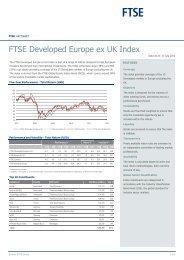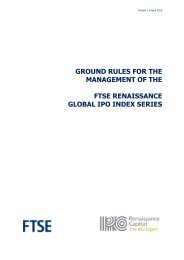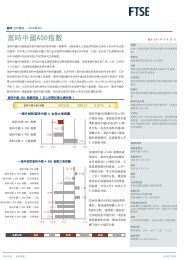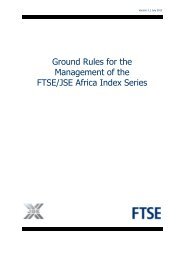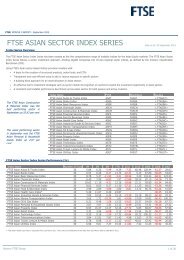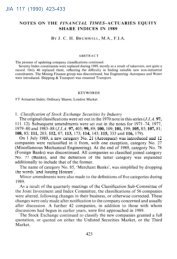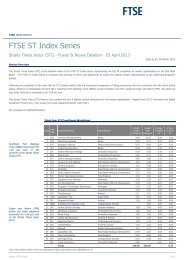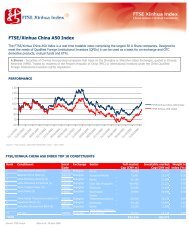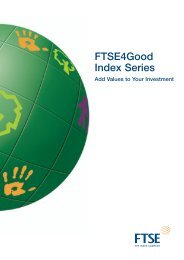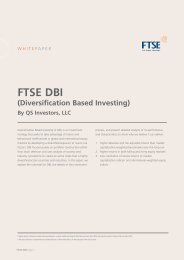Create successful ePaper yourself
Turn your PDF publications into a flip-book with our unique Google optimized e-Paper software.
poor. Worse, if many other countries follow France’s lead,<br />
demand could quite quickly become exhausted.”<br />
Jon Little, chief executive officer at Mellon <strong>Global</strong><br />
Investments is equally as critical. “There was definitely a<br />
herd mentality going on with the French deal and I would<br />
not be surprised if after few years some of those investors<br />
that bought into the bond begin to wonder what they got<br />
themselves into. The pricing left a lot to be desired.”<br />
But this does not worry Benoit Coeuré, deputy chief<br />
executive officer at AFT. The borrower’s February deal<br />
attracted demand from at least 10 different countries<br />
including Italy, Germany, the UK, Japan, the US, Sweden<br />
and France, while its eventual size beat expectations by<br />
around 100 per cent. Indeed, the issuer plans to increase<br />
the size of that deal to somewhere between €10bn and<br />
€15bn and then has ambitions to launch an inflationlinked<br />
50 year note once this has been achieved.<br />
“We were definitely surprised by the amount of investor<br />
demand there was for our deal,”says Coeuré.“We expected<br />
and were committed to issuing a deal of somewhere<br />
between €3bn and €4bn but eventually brought a deal to<br />
market that was twice as big as we thought. What we learnt<br />
is that demand is very deep and that there is more than<br />
enough room for other issuers to come to the market. In fact<br />
the more that come the better and that does not just mean<br />
sovereigns. We would also like to see more non-sovereign<br />
issuers, such as utilities, bringing 50 year deals as this will<br />
add more depth and liquidity to the sector.”<br />
Arnaud Mares, head of portfolio strategy at the UK’s DMO,<br />
also rubbishes Gould’s suggestion that the appearance of too<br />
many government 50 year bonds will dilute and ultimately<br />
extinguish investor demand. He believes that there is more<br />
than enough space for other ultra long issues and is<br />
unconcerned by the fact that there has been a spate of 50 year<br />
deals in a relatively short space of time.<br />
“It was never an issue for us what the other governments<br />
were doing and whether or not we were the first into the<br />
market,”says Mares.“It is not a race. We know that there is<br />
significant demand out there from the pension fund<br />
community but demand is not restricted just to pension<br />
funds. ultra long bonds have a high convexity and this<br />
makes them appealing to other sections of the market,<br />
such as hedge funds and the trading desks of banks.”<br />
But whether or not the demand for 50 year deals dries<br />
up over the next couple of years, right now investor<br />
interest in such bonds remains strong. Continued moves<br />
from the various European regulators to increase<br />
protection for pensioners and reduce their exposure to<br />
market risk is increasing the need for fixed income<br />
products – particularly long-dated instruments as<br />
countries move to fair-value liability accounting.<br />
At the same time, national treasury agencies throughout<br />
Europe have been eyeing the opportunity to issue very<br />
long-term debt at a time when both interest rates and<br />
inflation are at relative lows. This demand and supply<br />
match-up looks set to mark the arrival of many more ultra<br />
long bonds over the next 12 months, despite investors’fear<br />
<strong>FTSE</strong> GLOBAL MARKETS • JULY/AUGUST 2005<br />
Benoit Coeuré, deputy chief executive officer at AFT<br />
of rising interest and inflation rates.<br />
“Nominal 50 year deals are not as attractive as<br />
inflation-linked bonds but you can be sure that investors<br />
will jump into any deal if other investors are doing so,”<br />
says Read at Metal Box.“People do not like to be left on<br />
the sidelines and European sovereigns will not have a<br />
problem finding demand.”<br />
“Interest in these deals will not wane,”adds Emeric Challier,<br />
global CIO for European fixed income at Fortis Investments<br />
“If governments become too active in issuing 50 year bonds<br />
we may see a fall in demand but this will only happen over the<br />
longer-term. Right now we are just at the beginning.”<br />
Emeric Challier, global CIO for European fixed income at Fortis<br />
Investments<br />
59



